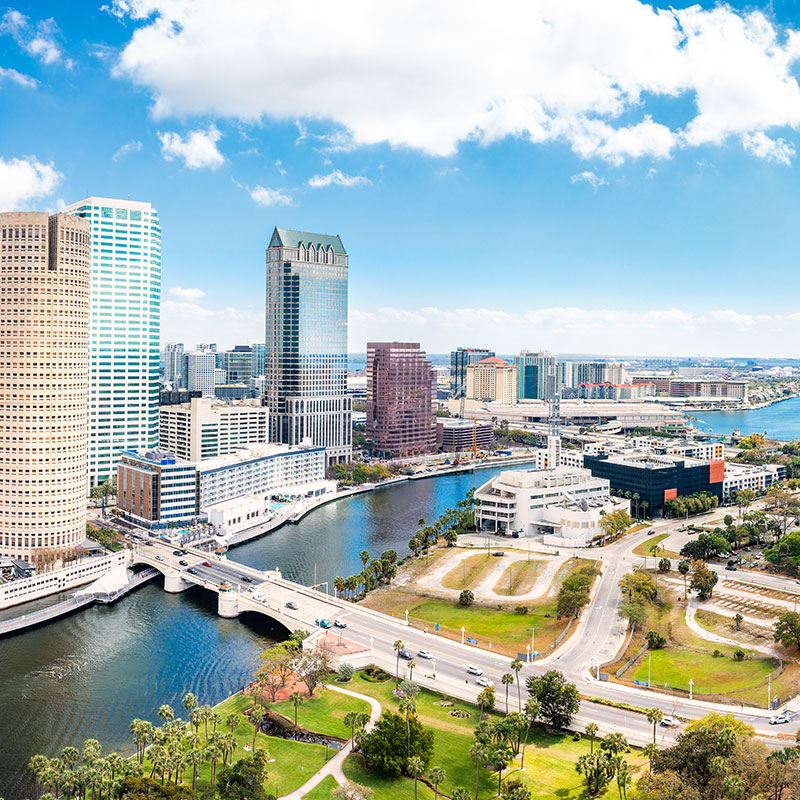Maybe you started using weed to relax, sleep better, or just take the edge off. But over time, it’s started to feel like you can’t go without it. If you’re wondering whether your marijuana use has crossed the line into addiction, you’re already asking the right questions. The truth is: marijuana addiction is real—and recovery is possible. Here’s what treatment actually looks like, and how you can take the next step at Sophros Recovery Tampa.
Can you get addicted to marijuana?
A lot of people assume marijuana isn’t addictive. It’s legal in many places, often used for medical reasons, and talked about casually in everyday life. But the truth is, marijuana addiction is real, and it’s more common than you might think. If you’ve tried to stop using weed and felt anxious, irritable, or had trouble sleeping, those could be signs of dependence.
Marijuana addiction, also known as marijuana use disorder, happens when your body and brain begin to rely on THC, the active ingredient in cannabis. Over time, using weed regularly can change your brain chemistry, making it harder to feel normal without it. And when that happens, quitting on your own can feel nearly impossible.
What are the different strains of marijuana you can become addicted to?
It doesn’t matter if it’s indica, sativa, or a hybrid—addiction doesn’t discriminate. Strains with high levels of THC are more likely to lead to dependence, especially when used daily or in large amounts. The more THC a product contains, the more intense the high—and the more it can affect your brain’s reward system.
Edibles, oils, waxes, and dabs often contain much higher doses of THC than traditional flower, increasing the risk of both dependence and mental health issues. Even strains advertised as “natural” or “relaxing” can lead to addiction over time, especially if used to manage stress or emotions.
Why do some people develop marijuana addiction?
Not everyone who uses marijuana becomes addicted, but for some, regular use can lead to physical and psychological dependence. Factors that increase your risk include starting young, using high-potency products, or using marijuana to cope with mental health challenges like anxiety, trauma, or depression.
Social and environmental influences also play a role. If you’re surrounded by people who use regularly—or live in a place where it’s easily accessible—it’s easier to slip into habits that become hard to break.
What are the signs of marijuana use disorder?
Everyone’s experience with marijuana use is different, but there are some common signs to watch out for that could indicate a problem:
- You’ve built a tolerance: You need more weed than before to feel the same effects, and the amount you once used no longer has the same impact.
- You can’t cut back: Even if you’ve tried to stop or reduce your use, you find yourself going back to it.
- It’s interfering with your life: Your use has caused you to miss work, school, or other important responsibilities, or it’s affecting your ability to stay focused and productive.
Other signs to be aware of include experiencing strong cravings for marijuana, feeling irritable or anxious when you try to quit, or continuing to use even when it’s negatively impacting your relationships, mental health, or daily functioning. Recognizing these signs is an important step toward addressing the issue and seeking help if needed.
Myths about marijuana use
Marijuana’s growing legal status has led to widespread confusion about its risks and effects. Misinformation can prevent people from making informed choices or seeking help when needed. Here are some common myths that often cloud the conversation:
“It’s not physically addictive.”
While the withdrawal symptoms from marijuana aren’t life-threatening, they can still cause significant distress. These symptoms, such as irritability, sleep issues, or cravings, can lead individuals back to use, perpetuating a cycle of dependency.
“Everyone uses it.”
Social normalization makes it easy to assume that marijuana is harmless, but popularity doesn’t equal safety. Just because others use it doesn’t mean it’s the right choice for your health or lifestyle.
“It’s safer than alcohol.”
While marijuana and alcohol have different effects and risks, that doesn’t mean marijuana is without harm. It can interfere with mental health, focus, motivation, and relationships, especially with long-term or heavy use.
Understanding the truth behind these myths is essential for making better, healthier decisions. By staying informed, you can weigh the risks and benefits more clearly and take control of your well-being.
What are the withdrawal symptoms of marijuana?
Withdrawal symptoms usually appear within one to three days of quitting and can last up to two weeks. They may include:
- Irritability or mood swings
- Anxiety or restlessness
- Trouble sleeping or vivid dreams
- Loss of appetite
- Headaches or fatigue
- Nausea or stomach discomfort
While not physically dangerous, these symptoms can be intense and discouraging. Having support during this time can make a big difference in staying committed to recovery.
How to treat marijuana addiction
Marijuana addiction is treatable, and recovery is possible. Treatment often includes a combination of services tailored to your needs and lifestyle.
- Medical detox (if needed): While marijuana withdrawal doesn’t typically require detox, some people benefit from professional support during the early days of quitting—especially if they’re also using other substances.
- Therapy: Evidence-based methods like CBT, motivational interviewing, and trauma-focused therapy help you address root causes and change unhelpful patterns.
- Group support: Connecting with peers provides encouragement, understanding, and shared accountability.
- Family therapy: Involving loved ones in your recovery can help rebuild trust and set healthy boundaries.
- Aftercare: Ongoing support after treatment—like outpatient counseling or peer groups—helps you stay on track.
Recovery is a journey that takes time, commitment, and support, but with the right tools and guidance, healing is always possible.
What does rehab look like for marijuana addiction recovery?
Rehab for marijuana addiction offers a safe, structured environment where you can begin to heal. Depending on your needs, you might enter a residential (inpatient) program or an intensive outpatient program.
A typical treatment day may include:
- Individual therapy to explore personal struggles and goals
- Group counseling for connection and skill-building
- Recreational and wellness activities
- Education on addiction, relapse prevention, and healthy coping
- Mindfulness practices or holistic options like yoga and art therapy
If you’ve been using marijuana to manage anxiety, depression, or trauma, your care team will work with you to address those underlying challenges—not just the surface symptoms.
Marijuana and mental health
Many people who struggle with marijuana addiction also experience co-occurring mental health issues like depression, anxiety, PTSD, or ADHD. It’s common to use marijuana as a form of self-medication, especially when other resources feel out of reach.
That’s why dual diagnosis care is so important. Treating both your substance use and mental health needs at the same time gives you the best chance at lasting recovery. Ignoring one side of the equation often leads to setbacks.
What happens after rehab?
Recovery doesn’t end after rehab—it evolves. Aftercare focuses on maintaining progress, building healthy routines, and addressing the root causes of addiction. This phase is essential for long-term success.
You might join an outpatient program, attending therapy while living at home or in a sober environment, helping you stay accountable while balancing work, family, or school. Relapse prevention plays a big role, involving trigger identification, planning for high-risk situations, and building a strong support system.
Life skills like budgeting, time management, and communication help boost confidence and independence. Finding joy and purpose without substances—through hobbies, fitness, relationships, or volunteering—is key to discovering fulfillment after rehab.
The journey isn’t always easy, but with the right aftercare and support, it’s absolutely possible to build a meaningful, substance-free life.
Why choose Sophros Recovery as your Tampa addiction treatment option?
At Sophros Recovery, we know that marijuana addiction deserves the same compassionate, evidence-based care as any other substance use disorder. Our team specializes in personalized treatment that addresses the whole person—not just the addiction.
We offer:
- Trauma-informed therapy
- Holistic care options
- Experienced clinicians who meet you where you are
- A welcoming, nonjudgmental space to heal
Whether this is your first time seeking help or you’ve tried to quit before, we understand that the journey is different for everyone. Quitting can feel overwhelming, but you don’t have to face it alone. We’re here to support you every step of the way, providing guidance, encouragement, and resources to help you navigate the challenges ahead.
No matter where you’re starting from, we’re committed to helping you achieve your goals and build a healthier, brighter future. Together, we can make it happen.
Frequently asked questions about marijuana addiction treatment
Can I detox from marijuana at home?
Some people can stop using marijuana on their own, especially if their dependence is mild. But if you’ve tried before and found it too hard—or if you’re using other substances too—professional help can make the process safer and more manageable.
Will I be judged for seeking treatment for weed addiction?
Absolutely not. At Sophros Recovery and other reputable centers, there’s no room for judgment—only support. Everyone’s journey is different, and asking for help is a sign of strength.
How long does marijuana rehab take?
It depends on your individual needs. Some people benefit from a few weeks of outpatient therapy, while others may need longer stays in residential programs. A care team will work with you to build the right plan.
Is marijuana really harmful compared to other drugs?
While marijuana may not carry the same overdose risk as opioids or alcohol, it can still have serious effects on your mental health, relationships, and motivation. Addiction is about how a substance affects your life—not how “hard” it is.
What if I relapse?
Relapse doesn’t mean failure. Many people relapse and still go on to build strong, lasting recoveries. What matters is how you respond. We’ll help you find your footing and move forward with confidence.
Struggling to quit? Call Sophros Recovery Tampa today
You don’t have to keep struggling alone. If marijuana is starting to control your life, it’s time to take it back. Reach out to Sophros Recovery Tampa to learn how our expert team can help you heal and thrive—without weed holding you back. Your path to recovery starts here—call 813.686.6306 or connect with us online to start today.




